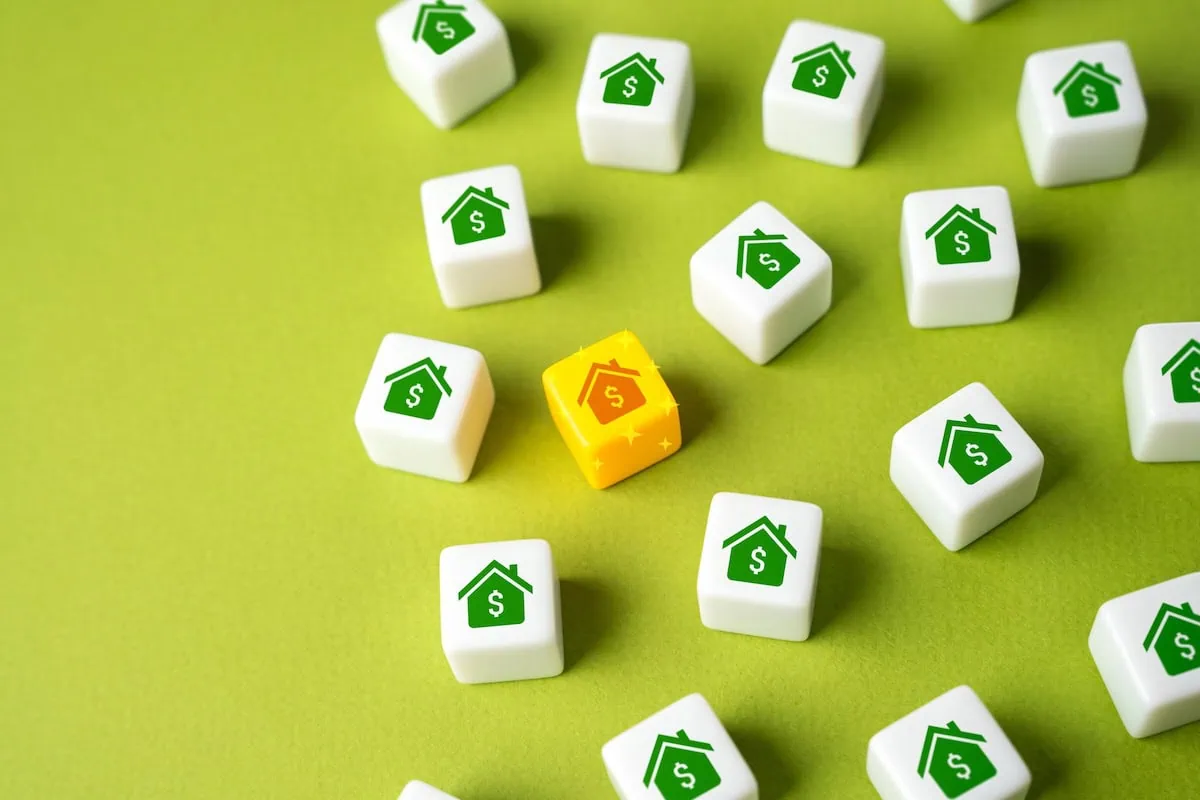“Should I rent or should I buy?”
It’s one of the most common financial questions a person will deal with in their lifetime—and one of the most consequential. And also, depending on your circumstances, is a question you might end up asking yourself at multiple times throughout your life.
It is not, however, an easy question.
Not only do you have to weigh numerous financial, emotional, and situational factors, but some of those factors are moving targets—the calculus behind whether to rent or buy in 2025 might be different in 2026, 2027, 2028, and so on.
Whether you need to make the decision today or in 10 years, read on. Yes, we’re going to tackle a few current items that might-be renters or homebuyers will need to consider today, but we’re also going to provide a list of more evergreen pros and cons you’ll need to work through no matter when you need to figure out your living situation.
Renting vs. Buying: What Factors Should You Weigh?

Ironically, the first time most people actually have to weigh whether to rent or buy is long after they’ve already started renting. When the average person moves out of their parents’ house, owning a home simply isn’t a realistic option—most people will rent for years before they ever make the leap.
What usually sparks the discussion? Well, it could be any number of things, such as:
- Needing to move to a new city, prompting a fresh housing choice.
- Having a child and deciding you need more room.
- Realizing you have (or are close to having) the means by which to own instead of rent.
Whatever the reason, the decision requires some time, some thought … and some level of compromise. After all, there are significant upsides and downsides to both renting and buying, so it’s rare for one option or the other to meet 100% of all your wants and needs.
Young and the Invested Tip: Some near-retirees face a similar dilemma regarding their housing: should they pay off their mortgage before retiring or carry that debt into their golden years?
We’ll start by looking at the different considerations you’ll need to make no matter when the question comes up. And we’ll do so with the help of Carolyn Morganbesser, AVP, Mortgage Originations at Affinity Federal Credit Union in New Jersey.
The Pros of Owning a Home

First, let’s look at the pros of homeownership.
- Payment stability: More than 90% of Americans with a mortgage have a fixed-rate mortgage, according to the Federal Reserve Bank of St. Louis. So while taxes and insurance might fluctuate over time, the mortgage portion of your home payment—which makes up the bulk of what you pay—will remain unchanged until you sell the home or pay it off. That compares favorably to renting, where you have effectively no control (short of moving) over how much your landlord decides to charge you from one year to the next.
- Situational stability: When you purchase a home, you’re making a long-term commitment that plants you in the same place for years, typically decades. It gives you a sense of permanence. “You become part of the community, neighborhood, church,” Morganbesser says. “You get to know the schools, the grocery stores, the restaurants, over time.”
- Equity: When you own a home, you can build “equity,” which means you have a financial stake in your home. The most obvious way this occurs is when your home grows in value, but your payoffs over time are an important part of the calculation. (If your home is worth $500,000 and you owe $400,000, you have $100,000 in equity. If you owe $300,000, you have $200,000 in equity.) “That equity can be used,” Morganbesser says. “We’ve seen it used for college expenses. We’ve seen it used to remodel the home.” Renters, on the other hand, build no equity with their payments. But it’s important to note that while most of us have seen home prices explode over the course of our lives, there’s no guarantee that a home will grow in value.
- More freedom to customize your space: When you own your home, you can do pretty much whatever you want to it (within the confines of the law, of course). Repaint the siding, renovate the basement, add a fireplace … it’s your place. That’s rarely the case when you’re renting, and if you are allowed to make changes, they’re usually limited.
- Rental income: You can rent part or all of a home to earn income. While potentially lucrative, though, there are significant trade-offs. If you’re renting out a part of your home, you’re losing that space to live within. No matter what you’re renting, you’ll need to deal with tenant screening, legal and regulatory compliance, maintenance issues, collecting rent, lease violations, and so on.
The Pros of Renting a Home

Now, here are the upsides of renting a place to live.
- Situational flexibility: Renting is much more ideal for people who may have to frequently move as a condition of their employment, or for people who simply want to live in different places across their lifetimes. “You’re tied in for a year or two, but then you can go whenever the lease expires,” Morganbesser says. When you own, however, you must go through the much more complex process of selling your home—and if you’ve only owned for a short while, you could potentially have negative equity in the home (you owe more than the home is worth).
- Less upfront capital required: When you begin renting an apartment, you’ll have to put up a security deposit, you’ll likely need to pay your first month’s rent in advance, and in some cases, you’ll need your last month’s rent in advance, too. It’s not nothing, but it’s considerably less than what you need to buy a home. “You have to have saved up a down payment and closing costs to be able to purchase. And they’re substantial,” Morganbesser says. “Even with a low-down-payment option … on a $400,000 home with a 3% down payment, that’s still $12,000. Then you factor in closing costs, prepaids (any taxes and insurance that is due prior to first payment of the mortgage) and escrow. Depending on the taxes in the area that you’re purchasing in, that could equal another $20,000 or more.” Morganbesser adds that some neighborhood associations provide grants for some of these funds to income-eligible people, so it’s worth looking to see whether those grants are available when you buy.
- No maintenance costs: Repairs and upkeep generally are not your responsibility when you rent. If your garbage disposal breaks through regular usage, your landlord must address it. That’s not the case for homeowners. According to State Farm, you can use one or two rules-of-thumb to figure out your maintenance and upkeep costs. One is to set aside 1%-4% of your home’s value for annual upkeep (so, $4,000 to $16,000 per year on a $400,000 home). The other is to set aside a dollar per square foot (so, $3,000 for a 3,000-square-foot home).
- No risk of property devaluation: While you can’t build equity in your home when you rent, you can’t lose equity either. Should the housing market crash while you’re a renter, and you need to move, you won’t need to worry about selling a home you’re underwater in.
Young and the Invested Tip: On the fence about making home improvements? These are the ones to do last if you want a return on your investment.
The Current Environment for Buying and Renting

If you’re looking to make the decision today, you have to work with real-world numbers.
You’ll typically want to use a mortgage or rent vs. buy calculator for quick-and-dirty numbers, or consult with a mortgage specialist for exact figures, but here’s a quick example where taxes, deposits, and other figures are already included for simplicity’s sake:
You live in Maryland. You’re considering a $400,000 home with a 20% down payment (so, a $320,000 loan) at 6.5%, or renting at $2,000 assuming a 4% increase to rent every year.
Buying would become cheaper than renting after about six years (buying would cost about $2,309 per month vs. $2,436 for renting). By year 30, renting costs would be $5,827, nearly double the $3,071 monthly payment for owning.
One of the biggest issues for renters right now is, ironically enough, the housing crisis.
A recent Redfin report shows that nearly 89% of U.S. homeowners have a mortgage rate below 6%, 60% have a rate below 4%, and nearly a quarter have a rate below 3%.
“So they’re not listing their homes because they don’t want to go from a 3% rate on a $600,000 home to a 7% interest rate,” Morganbesser says.
Where there are houses, you’re finding bidding wars where houses might sell for $100,000 over ask, she says. But for every successful homebuyer, there are numerous disappointed bidders, and still other would-be buyers who can’t afford to bid that high.
“We’ve had members who have been looking for a house for three years, and they get get outbid, or the house needs a ton of repairs that they don’t have the money for, or they don’t have the inclination to do, and they come back to us and say, ‘You know what? I’m gonna rent for another year. I’m going to save up more money. I can’t keep going through this,'” she says. “It’s heartbreaking.”
For those with the means, however, Morganbesser says that while you might need to keep your eye on home-price and interest-rate trends, your decision comes down to your personal needs.
“You have to let market conditions affect you to a certain extent, but if you’re ready to purchase a home, you have the wherewithal, the funds, and you’re tired of renting, then you buy a house,” she says.
Want to talk more about your financial goals or concerns? Our services include comprehensive financial planning, investment management, estate planning, taxes, and more! Schedule a call with Riley to discuss what you need, and what we can do for you.








